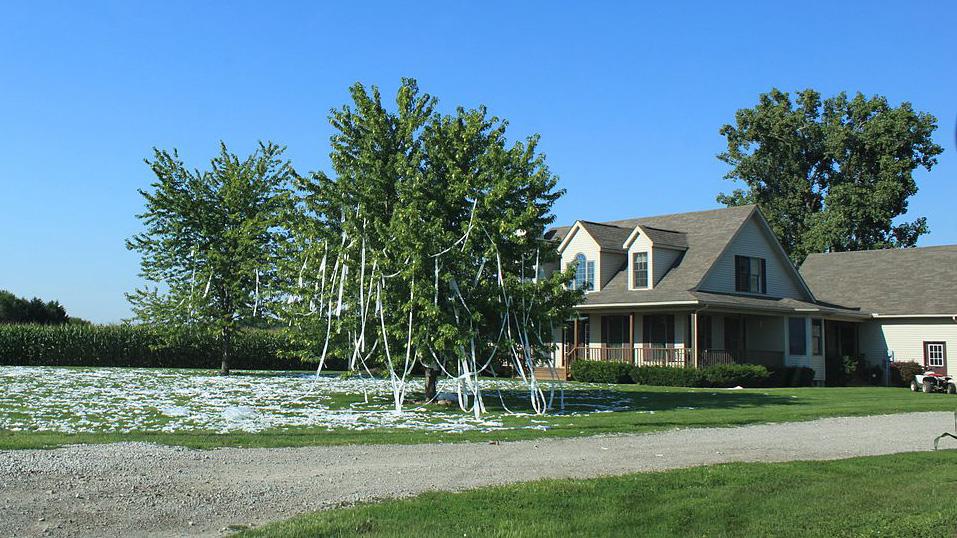Do you have an accent? These are the words to try
oembed://https%3A//www.youtube.com/watch%3Fv%3Dw7gEeq6PPTA
When linguist Bert Vaux posted a corpus of words and questions on his Harvard website back in the early 2000s, little did he know that he would spawn an international meme.
The quiz was supposed to test his students’ regional American accents. Did they say soda or coke or pop? Was it a roly-poly or a doodlebug? Did they TP a house or wrap it? Do they wear sneakers or gym shoes or tennis shoes?
Vaux was inspired to research the regional variations of English around the country because of his own mixed up accent. “Moving around [as a kid] made me interested in these things,” he says.
His parents were from New York and Indiana, he spent his formative years in Texas and then moved to Chicago and then moved to England as a teen. And he was always getting made fun of for his accent.
“I always liked to use ‘you all’ to address a group of people. And I noticed when we moved to Chicago that ‘you guys’ is what they used. And when we moved to England when I was 13, I was made fun of for those and they used ‘you lot’ instead,” says Vaux.
Tens of thousands of people ended up taking that initial quiz that Vaux posted and in the years that followed after the advent of social media, hundreds of thousands more accent enthusiasts followed. In 2011, people started videotaping themselves taking a version of the quiz and posting their videos on YouTube as “accent tags.” It's called an accent tag because at the end of each video the v-logger challenges or “tags” a friend to take the accent quiz.
Writer Debbie Nathan traced the history of the accent tag for the language journal Schwa Fire. Nathan watched hundreds of these accent tag videos in the course of her reporting and what she noticed is that this wasn't just people simply taking a quiz. It was a performance.
“Linguists are really impressed by [accent tags] because most people who haven’t studied linguistics have a prescriptivist — that’s how the linguists say it — view of the proper way to speak a language. And they learn that in school and they learn that from all kinds of social pressure," she says. "There are dialects in this country and any country that are stigmatized and dialects that are held up to be the models. So when people say that they’re going to speak their dialect on a YouTube video, that’s kind of unusual because they’re not being prescriptivist. They’re being what linguists call descriptivist, which is what linguists are. To linguists, nothing’s right and nothing’s wrong. So it’s pretty impressive to see people being proud of the way they talk."
According to Nathan more than 400,000 accent tag videos have been posted to YouTube. The quiz varies from video to video, but in general it consists of a corpus of words to pronounce and a set of questions to answer.
Try it for yourself:
Words:
Aunt, Roof, Route, Wash, Oil, Theater, Iron, Salmon, Caramel, Fire, Water, Sure, Data, Ruin, Crayon, New Orleans, Pecan, Both, Again, Probably, Spitting image, Alabama, Lawyer, Coupon, Mayonnaise, Syrup, Pajamas, Caught, Naturally, Aluminium, Envelope
The Questions:
1. What is it called when you throw toilet paper on a house?
2. What is the bug that when you touch it, it curls into a ball?
3. What is the bubbly carbonated drink called?
4. What do you call gym shoes?
5. What do you say to address a group of people?
6. What do you call the kind of spider (or spider-like creature) that has an oval-shaped body and extremely long legs?
7. What do you call your grandparents?
8. What do you call the wheeled contraption in which you carry groceries at the supermarket?
9. What do you call it when rain falls while the sun is shining?
10. What is the thing you change the TV channel with?
